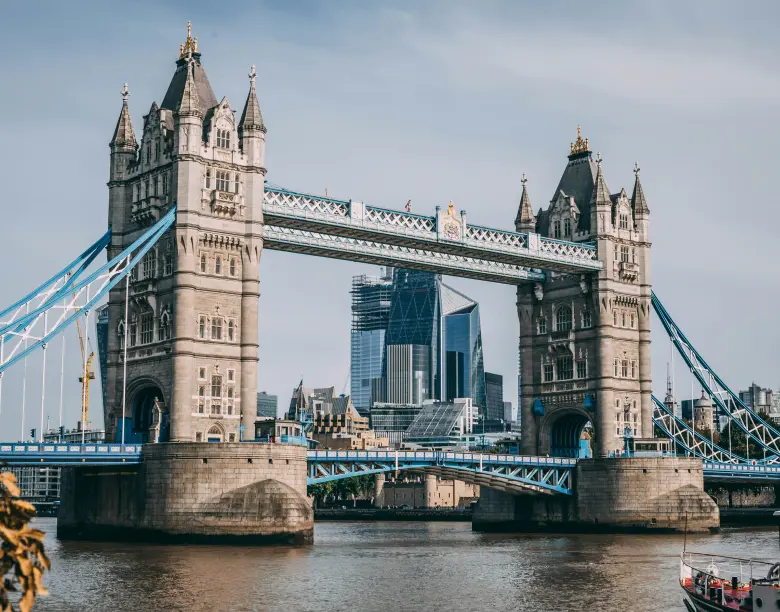Introduction
In a renewed effort to reduce net migration numbers and combat illegal immigration, the UK government has recently escalated its enforcement measures by introducing more rigorous inspections, increasing fines, and targeting companies that employ illegal workers with civil penalties. Receiving a civil penalty notice from the Home Office can pose a significant challenge for any organisation. This notice indicates a breach in sponsor licence compliance, potentially leading to substantial fines and reputational damage.
This article aims to navigate the complexities of challenging a civil penalty, offering essential guidance for organisations faced with this situation.
A civil penalty notice informs the organisation that it has, perhaps unknowingly, employed an individual without proper work authorisation in the UK. The civil penalty regime is impartial, impacting employers who may inadvertently neglect their duties and those who diligently attempt to comply but fall short due to procedural oversights.
Fines for such infringements are substantial, currently up to £20,000 per illegal worker. From 2024, this fine is set to increase to £45,000 for a first offense and up to £60,000 for subsequent offences for organisations dealing with multiple workers.
More alarmingly, should the Home Office deduce that an organisation has deliberately employed illegal workers, the consequences extend beyond financial penalties. They may include criminal prosecution and potentially limitless fines. Furthermore, this can lead to a downgrading or revocation of the organisation’s sponsor licence, critically impeding its capacity to employ foreign skilled workers. Given these severe financial, operational, and reputational repercussions, it becomes imperative for employers to assess their options for appealing against a civil penalty notice.
What is a Civil Penalty under the Immigration Act
A civil penalty, as defined under the Immigration Act, represents a financial sanction levied by the UK Home Office on businesses that employ individuals lacking lawful authorisation to work in the UK. Employers are obligated to perform right-to-work checks to verify the eligibility of their workers.
The penalty amount can vary depending on several factors, including the severity of the breach and whether the employer has previously been found liable for similar breaches.
When does the Home Office issue a civil penalty for illegal working?
As explained at the start of this article, enforcing civil penalties for illegal working has become a fundamental aspect of the UK’s immigration law enforcement. These penalties not only serve as a deterrent against illegal employment but also ensure that businesses maintain compliance with immigration regulations.
Below, we explore how the Home Office assesses and targets companies that are in breach of these regulations.
Determining liability
The process begins when the Home Office investigates a business, possibly triggered by an anonymous tip-off. If no illegal workers are discovered during this visit, the employer is issued a No Action Notice, and the case is closed.
However, if evidence of illegal working is discovered, the employer must provide a lawful excuse, known as a statutory excuse (which will be explained in more depth later on in this article). Failure to provide such an excuse results in the Home Office’s Civil Penalty Compliance Team (CPCT) issuing a referral notice.
It’s also worth mentioning that when a company suspects a potential illegal worker is employed in their organisation, they must adhere to a fair process before terminating the employee’s contract. This includes allowing the employee an opportunity to demonstrate their right to work in the UK.
Gathering information
During the visit, officials from the Home Office inspect HR documents and complete Additional Worker Supplements (AWS) for each illegal worker discovered.
The employer then receives a request for information, which includes details about the business and previously conducted right-to-work checks.
It is crucial for employers to respond to this request with the necessary supporting documentation within the specified deadline, as this response is key in determining any future penalties, if applicable.
Assessing the severity of the breach
The Home Office assesses the severity of the breach using the employer’s previous record of illegal employment. Harsher penalties are imposed on those who have employed illegal workers in the past three years.
From the start of 2024, the UK government has significantly increased civil penalty fines for illegal working. The minimum penalty per illegal worker for first-time offenders will be £45,000. For repeat offenders, the penalty could escalate to £60,000 per illegal worker. This marks a substantial increase from the previous fines, which were £15,000 for a first breach and £20,000 for repeat breaches.
Issuing a Civil Penalty Notice
After considering the employer’s response, the CPCT decides on the appropriate action. This could range from a Formal Warning Notice to a reduced civil penalty, depending on whether successful mitigation has occurred.
Employers have 28 days to pay the outstanding penalty fees, either through a one-off payment or via an installment plan to spread the cost. They can also use this period to formally object to the penalty itself.
Determining the penalty amount
The final penalty is determined by considering various mitigating factors. For instance, it depends on whether the employer cooperated with the Home Office throughout the process and implemented effective right-to-work verification procedures. These factors could result in a £5,000 reduction in the penalty per illegal worker.
However, to be eligible for reductions based on effective right-to-work checks, the employer must have already qualified for reductions due to reporting suspicions and active cooperation.
In many cases, small businesses may qualify for a reduction for active cooperation, particularly if they genuinely believed in the employee’s right to work based on misunderstood documentation.
How to respond if you have received a Civil Penalty Notice
for illegal working
Step 1: Immediate response to the Civil Penalty Notice
Upon receiving a Civil penalty notice, it’s crucial for employers to promptly review the notice and understand the grounds on which the penalty has been assessed.
The notice typically details the alleged breach, the amount of the penalty, and the deadline for response, which is usually 28 days.
Step 2: Evaluating the options
Employers have two primary options: to either pay the penalty or challenge it. The decision should be based on a thorough assessment of the situation, including the strength of the employer’s case and the potential impact of the penalty on the business.
Paying the Penalty: If a business opts to pay, it can request an installment payment plan, typically spanning 24 months, and in some cases, extending up to 36 months. This requires providing details of the employer’s financial situation and reasons for being unable to pay the penalty in full.
Challenging the Penalty: Employers can object to the penalty in writing by the specified date in the notice. The challenge can be based on several grounds, including not being liable for the penalty, having a statutory excuse, or the penalty being excessively high in relation to the compliance breach.
Step 3: Challenging the penalty
Challenging the penalty involves presenting a strong case based on one or more of the following grounds:
- Non-liability: Simply put, this means the employer claims they have not employed the illegal employee(s) in the first place. This situation could apply to contractors and agency workers sent to a business, where they are employed by the agency, not the business itself.
- Statutory excuse: This applies when employers can demonstrate that they have conducted right-to-work checks and followed relevant Home Office guidelines. Detailed and thorough documentation to prove the excuse is often required.
- Excessive penalty: This involves showing that the penalty amount is miscalculated or that mitigating factors were not considered.
Step 4: Consider the mitigating factors
Several mitigating factors can influence the decision of the Home Office and potentially reduce the penalty:
- Employer’s history: If the employer has previously reported suspected illegal workers, the fine could be reduced by £5,000 per illegal employee.
- Active cooperation: Demonstrating active cooperation with the Home Office investigation can lead to a further reduction of £5,000.
- Effective right-to-work procedures: Having effective document-checking practices can lead to a significant reduction, potentially downgrading the civil penalty notice to a warning notice, thus eliminating the fee.
Step 5: Seek legal advice
Before deciding to challenge the penalty, it’s advisable to seek legal advice. Bear in mind that during the appeal stage, the penalty could increase if new information is found that was previously unknown to the Home Office. The appeal may proceed to the County Court, requiring a comprehensive and well-prepared case.
Could a Civil Penalty Lead to Criminal Conviction?
Employers should be aware that beyond civil penalties, criminal proceedings can also be initiated against those who have knowingly employed illegal workers. This is punishable by up to 5 years’ imprisonment and/or an unlimited fine.
Potential Consequences of Civil Penalties
The consequences of a civil penalty extend beyond financial implications. They can affect an organisation’s sponsor licence, leading to downgrading or revocation, which is critical for businesses reliant on skilled foreign staff. Moreover, as explained above, there are potential criminal ramifications if an organisation is found to have knowingly employed illegal workers.
What will happen to my sponsor licence if I receive a civil penalty?
Following updates to the Sponsor Guidance, there are now mandatory and discretionary circumstances under which sanctions, including revocation, are applied. Notably, employing workers illegally often leads to mandatory revocation due to its classification as a serious breach of sponsor responsibilities.
If an employer receives multiple civil penalties for illegal employment and fails to address these liabilities even after exhausting all objections and appeal rights, the revocation of the sponsor licence becomes a likely outcome.
When can I apply for a new Sponsor Licence?
In cases where a sponsorship licence is revoked due to illegal employment, the employer must endure a mandatory ‘cooling-off’ period before reapplying. This period typically spans a minimum of 12 months, extending to five years if multiple civil penalties have been issued.
The Home Office keeps records of civil penalties, which can influence the assessment of future immigration applications, particularly for employers subject to immigration control. The Immigration Rules and caseworker guidance indicate that an employer’s involvement in illegal employment can lead to the refusal of future applications on the grounds of not being conducive to the public good.
How a civil penalty can affect company director(s)
An unresolved civil penalty, especially one that prompts enforcement action by the Home Office, can negatively affect personal credit ratings and the ability to hold directorship positions in companies.











